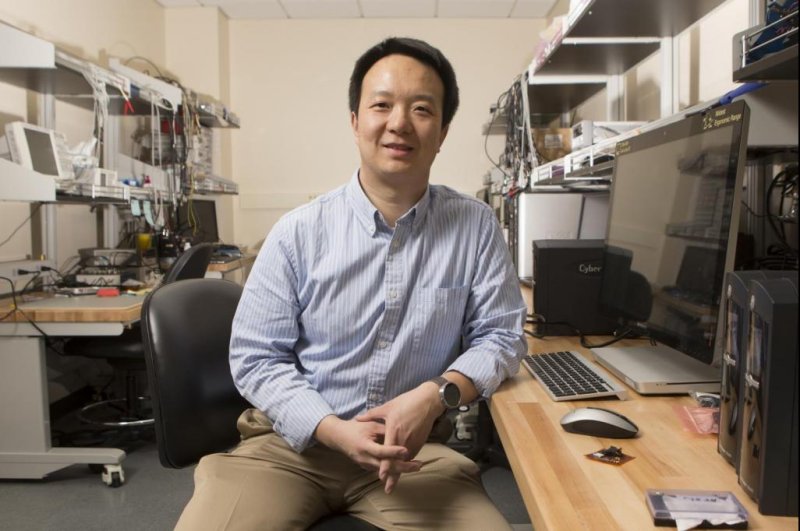Zhanpeng Jin, an assistant professor in the Department of Electrical and Computer Engineering at the Thomas J. Watson School of Engineering and Applied Science at Binghamton University, has developed a method to use a person's heartbeat as a password to access electronic health data. Photo by Binghamton University
Jan. 18 (UPI) -- Researchers at Binghamton University have created a new method to use a person's heartbeat to access their electronic healthcare records in an effort to protect personal information.
"The cost and complexity of traditional encryption solutions prevent them being directly applied to telemedicine or mobile healthcare," Zhanpeng Jin, assistant professor in the Department of Electrical and Computer Engineering at the Thomas J. Watson School of Engineering and Applied Science at Binghamton University, said in a press release. "Those systems are gradually replacing clinic-centered healthcare, and we wanted to find a unique solution to protect sensitive personal health data with something simple, available and cost effective."
Researchers used electrocardiograph, or ECG, information to act as a password to lock or unlock a person's electronic health records.
"The ECG signal is one of the most important and common physiological parameters collected and analyzed to understand a patient's health," Jin said. "While ECG signals are collected for clinical diagnosis and transmitted through networks to electronic health records, we strategically reused the ECG signals for the data encryption. Through this strategy, the security and privacy can be enhanced while minimum cost will be added."
Jin and his team had previously used an individual's brainprint to access computers and buildings along with cybersecurity work from Linke Guo, assistant professor, and Yu Chen, associate professor at Binghamton University.
"This research will be very helpful and significant for next-generation secure, personalized healthcare," Jin said.
The study was presented at The IEEE Global Communications Conference in December 2016 and is considered preliminary until published in a peer-reviewed journal.















